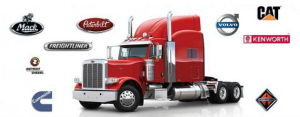In the United States, the trucking and transportation industry is an essential part of the economy.

With more than three million truck drivers and a fleet of over three million commercial motor vehicles, the industry is a major contributor to the nation’s GDP. In addition, the industry is also responsible for transporting a variety of goods and services across the country. Thus, proper maintenance of trucking and transportation equipment is essential to ensure the safety and efficiency of the industry.
Proper maintenance of trucking and transportation equipment is a multidimensional process that includes routine inspections and repairs, preventive maintenance, and general upkeep. We will review the importance of each aspect of maintenance and provide best practices for trucking and transportation companies.
Routine Inspections and Repairs
Routine inspections and repairs are critical for ensuring the safety and reliability of trucking and transportation equipment. The Federal Motor Carrier Safety Administration (FMCSA) requires all commercial motor vehicles to be inspected at least once every 12 months, or every 10,000 miles. The FMCSA also requires all drivers to conduct a pre-trip inspection before each trip, which should include a visual inspection of the exterior, interior, and undercarriage of the vehicle. During the pre-trip inspection, drivers should also check the brakes, tires, lights, and other mechanical components to ensure they are in good working order.
In addition to the pre-trip inspection, trucking and transportation companies should also conduct periodic inspections of their vehicles to identify and address any potential problems before they become major issues. These inspections should include checks of the engine, transmission, brakes, and other mechanical systems, as well as checks of the exterior, interior, and undercarriage of the vehicle. Companies should also ensure that their vehicles have been properly maintained, and that all necessary repairs have been made in a timely manner.
Preventive Maintenance
Preventive maintenance is an important part of any trucking and transportation company’s maintenance program. Preventive maintenance involves the regular inspection, cleaning, and replacement of vehicle components to prevent problems from occurring. Regular preventive maintenance can help reduce the risk of breakdowns and other unexpected issues, which can lead to costly repairs and downtime.
Preventive maintenance should include regular oil changes and lubrication of the engine and other mechanical systems, as well as regular inspections and cleaning of the vehicle’s exterior, interior, and undercarriage. Companies should also ensure that all tires are properly inflated and rotated, and that the brakes, lights, and other components are in good working order. Additionally, companies should also check for signs of wear and tear on the vehicle, and replace any components that show signs of wear and tear before they cause problems.
General Upkeep
General upkeep is another important part of a trucking and transportation company’s maintenance program. General upkeep includes regular cleaning of the vehicle, as well as checks and repairs of any non-mechanical components. Generally, trucking and transportation companies should check and clean the interior and exterior of their vehicles on a regular basis. This includes checking and cleaning the windows, mirrors, and other glass components, as well as checking and cleaning the body and frame of the vehicle.
Additionally, companies should check and repair any non-mechanical components of the vehicle, such as the seats, seatbelts, and dashboard. Companies should also check and repair any electrical components, such as the lights, turn signals, and horn. Companies should also check and repair any interior components, such as the radio, air conditioning, and climate control systems.
Conclusion
Proper maintenance of trucking and transportation equipment is essential for ensuring safety and reliability. Routine inspections and repairs, preventive maintenance, and general upkeep are all important aspects of a trucking and transportation company’s maintenance program. By following the best practices outlined in this article, trucking and transportation companies can ensure that their vehicles are properly maintained, and that their drivers and passengers are safe.